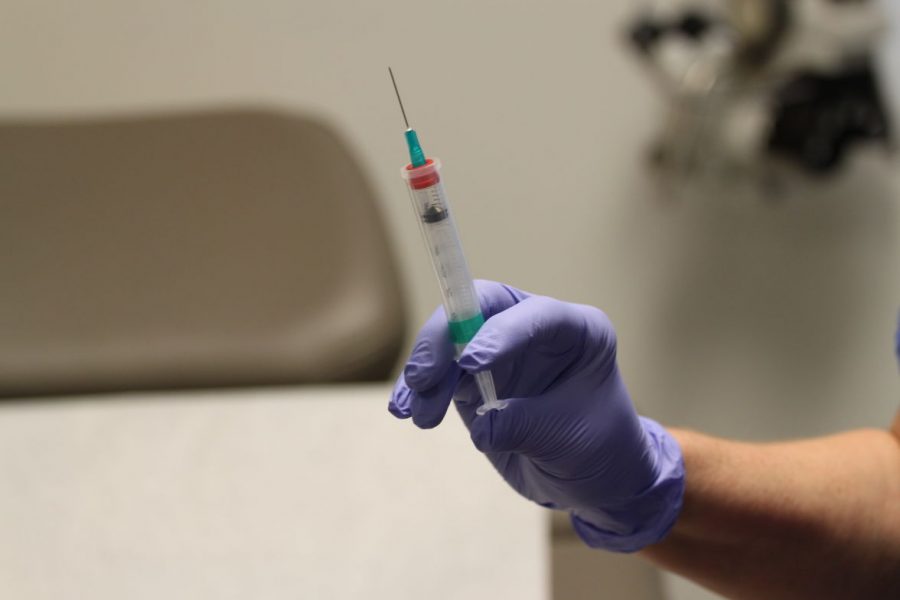Tulane’s 15-minute Ebola test receives FDA approval
The syringe pictured above is like one that may be used to draw patients’ blood and use the 15-minute Ebola test designed by Tulane.
March 11, 2015
The Food and Drug Administration approved Tulane’s recently developed 15-minute Ebola test, the only rapid test for Ebola in the world. The university produced this test in less than one year in coordination with Corgenix Medical Corporation, a worldwide developer and marketer of diagnostic test kits.
The FDA approved Tulane’s ReEBOV Antigen Rapid Test on Feb. 24 for Emergency Use Authorization. The EUA means that the rapid test can be used as an emergency test in laboratories or facilities adequately equipped, trained and capable of such testing, including treatment centers and public health clinics.
Tulane physician John Schieffelin helped conduct field tests in Sierra Leone to develop the rapid test.
“One of the greatest challenges we faced on the Ebola Treatment Wards was caring for suspected Ebola patients for one or two, sometimes three or more days, before their laboratory results came back,” Schieffelin said. “We were constantly concerned that patients without Ebola who were admitted to the suspect ward would become infected before their negative test results returned. This rapid test will greatly decrease those risks.”
FDA Press Officer Tara Goodin provided a statement from the FDA regarding the EUA of the ReEBOV test.
“The authorized ReEBOV Antigen Rapid Test is intended for circumstances when use of a rapid Ebola virus test is determined to be more appropriate than use of an authorized Ebola virus nucleic acid test, which [is] more sensitive in detecting the Ebola virus,” the FDA stated.
Ebola is indigenous to Africa and one of the deadliest viruses in the world.
Corgenix President and Chief Executive Officer Douglass Simpson said in a statement from the company that the collaboration helped create a breakthrough in the fight against Ebola.
“The FDA and [World Health Organization] have been working closely with us throughout this process to get this new test in the hands of those battling on the front lines of the Ebola outbreak as quickly as possible,” Simpson said. “Completing this product development in less than a year demonstrates how governmental agencies, regulatory bodies, industry, non-profits and others can work together to find solutions to catastrophic events such as the Ebola virus outbreak.”
Schieffelin said he thought the Ebola test, which the team developed in less than one year, was an amazing effort by all parties involved.
“It took a monumental effort by many different people at Tulane and several other organizations spread across two continents to get all the needed testing and optimization done in such a short period of time,” Schieffelin said.
The 15-minute Ebola test is currently only used in emergency situations, but has been called a potential game-changer in the fight against Ebola in Africa.










Leave a Comment